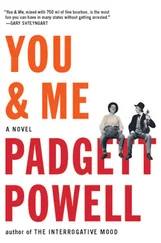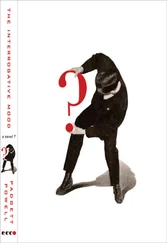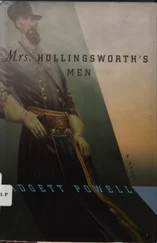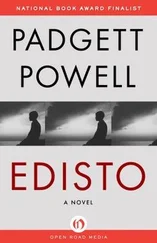“I’ve got to go,” she says, pulling away, it seems with only one hand, her right, which has three rings, I notice, on one finger.
“Well, put a glass slipper in the red pickup out there,” I say. She leaves.
I go to the bar. It is in a large card room with a commercial big-screen television in a corner. The low-country boys do things right.
Someone says, “Hey, man, she’s married.”
I shrug. I am confident I acquitted myself brilliantly. The motif is backwards — my pickup truck among the Mercedeses is the pumpkin coach, and I should have on the slippers — but, I think, that is even better. She’ll get the picture. The backwardness is a profit in irony.
At the bar I am served a beer and a parrot. You may have a parrot for your shoulder as you drink. The parrots, when served, lie on their sides on the bar, perhaps talking to you, until you pick them up. They are stored on a shelf under the bar like silverware and either can’t immediately move or are trained not to.
HAVE: WIFE, CHILD, HOUSE, dog, truck, car, boat, lake lot, annuities, IRA, shotgun, handgun, stun gun, spear gun.
Don’t have: girlfriend, country home, Yazoo, liquor sideboard, anyone on retainer, condo on beach, friends.
I do not know any famous turkey guides.
I have no hope of recovering the kind of time and place that Florida was when a large rattlesnake slipped under the maid’s quarters — a six-by-eight room detached from the house on Kingsley Lake, its roof, I believe, already gone, which deterred no one from calling it the maid’s quarters, and inspired no one to remove or protect the maid’s meager furnishings — slipped under the maid’s quarters, amid the grown male hollering that accompanies the movement of all sighted snakes, got under there and holed up good, which was not too hard, because the hollering grown men did not go after him with much more than a rake handle and maybe later, inspired, a water hose on full blast, idea being that rattlesnake under maid’s quarters would prefer having his head chopped off to getting wet: this kind of time and place is gone.
For one thing, I am nearly as old as the grown hollering men were then, and I do not holler at rattlesnakes, even if I could find one, and I can’t. They are extinct.
Maids are out of the question.
The quarters are now a low ruin of powder-post beetle-age and funny-looking marks on the ground, as if something got nuked.
It is hot enough, generally, to think that something should get nuked.
The hollering men are dead, some of them, and some have new child brides and drinking problems, according to their ex-wives, and I have a drinking problem, and the maid’s descendants have crack problems, or no problems except no small desire to annihilate all the descendants of the hollering men.
All of us have hope of salvation, I think, except those who actually stuck a rake handle two feet under the skirt of the maid’s quarters and held it there three seconds, then ran, wondering why the rattlesnake had not obligingly attached himself to the handle for ease of magical extraction and his own execution. Some of them are still wondering.
SPAVINED, CLAVICULAR, AND COW-HOCKED, with an air not of malice but simply of a leaden determination that seemed to come up from the hard, baking ground itself on which it stood, chained, confined, gravitate to the orbit of earth depressed, moonlike, and polished by its five-foot circular diurnal traveling, looking forward with a low-lidded not scowl or glare but just look, the eyes half-lidded and half-rolled, suggesting not insolence or calculation or even sentience but a kind of pride — rear-axled and log-chained for a lifetime to a hot powdery hole in which it is its fate to consider its chances of fighting, the rare times not chained, for its very life — a profound self-esteem that says simply, I am here, you see that I am here, what need to look you in the eye: the bulldog bit the corncob truncate.
Truncate?
Into foreshortened segments, not as if—
He busted it all up?
— not as if they had once been parts of a greater piece, but as if they could yet assemble into a piece larger, so profound was their truncation—
Dog bit the corncob?
— there, vanquished at the splayed feet of the animal with an air not canine but not unlike a locomotive, small, furred, steeled, yet without so much a train of cars behind it as the quintessence of linked and smelt earthcore, its log chain—
Dog bit the goddamned corncob?
— yes. Yes. Wait—
In half or what?
Wait. Not halved so much as no longer whole, as if in the authority of the bite was contained the undoing of natural history, and if there were two pieces of corncob where there had been one, there might have been now twenty; for the moral, imperative, and inviolate impression made was of a corncob no longer one.
In half, in the dirt?
In the moted, desiccate, rivulet ground.
I dig where you comin from, but you talkin in circles.
Helically, gyring, for the truth is never at one location but variant, even unto itself: dislocate, inchoate, rubricate of subtler chance—
God, man. Say it. We this far, all happen is dog done bit a corncob. I’d have me a dog done kill a horse by now, drag a man out a burning house. And you want you a mean bulldog? He gone bite a corncob? Shih. I seen dog so mean he bust up his water dish — a Buick hubcap! And not just once, every time you give him water. Don’t even drink the water first! Whyont you let your dog bust up a bicycle with a kid on it, or bust up lawnmower, a runnin lawnmower—
The corncob is integral to this kind of story. You can do a lot with a corncob.
Yours is bust up.
True. You can do a lot with what can no longer happen. Thwarted fate is integral to this kind of story.
Well, integral some action in your story. Git on wid it.
Wait. Wait. Wait.
What else I can do?
Wait.
GOING UP THE LADDER after lunch I see Wayne badly handling the stepladder we need to get to the dormer peaks and wonder how he gets away with stuff like that without falling: and then that he does not get away with it and he is falling, falls off the roof, and I wince but do not look down. I wait for the sounds. I wait clenching the ladder where I stand five rungs from the top. There is no sound. Can Wayne have found a soft canopy of tree? Has he tricked me?
I go backwards down the ladder. Not far from it, facedown, Wayne. I kneel and of course think of Rule #1: Don’t move him. Then I see Rule #1 may not apply: Wayne’s head is gone. This, too, looks like a trick. There is no blood or gore and from my angle, behind and to the side of him, no wound visible, just no head, as if he’s an incomplete scarecrow.
The woman whose roof we’re fixing comes out.
“Wayne fell off the roof,” I tell her before she fully reaches us, as if to prepare her for a horror that I don’t want to surprise her.
“Wayne’s dead,” she says, and goes back in the house. She didn’t know Wayne and to my knowledge had never heard his name. She has given me a lesson in hard-boil.
Of course, I say to myself. Wayne’s dead, let’s hard-boil. I was afraid to glance ten degrees from Wayne to look for his head. His head would have been too much. But now, hell, Wayne’s dead and the lady is back in the house. I see her stop her daughter from running out of the house with a Popsicle. The kid has picked up a signal on its radar and is using a Popsicle to try to get through the lines. “No, you don’t,” her Wayne’s-dead mom tells her, turning her with the child’s momentum and aiming her back into the house.
Читать дальше












